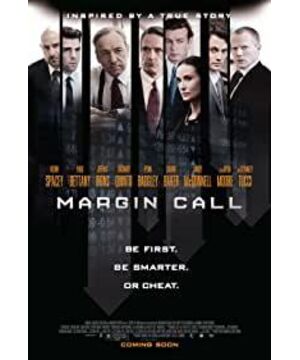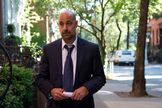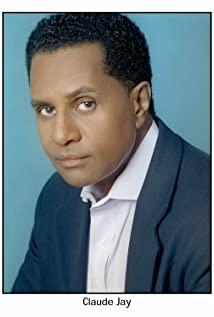I originally wanted to watch a movie similar to "The Big Short" and searched for it, but I was a little disappointed after watching it, because the movie involved not much economic and financial knowledge, or it did not show the subprime mortgage from all aspects as in-depth as "The Big Short". crisis. The film focuses more on business practices and business ethics.
At the beginning of the film, it is said that the securities company has laid off a large number of employees in the risk control department, and even Eric, the risk control director who has worked in the company for 19 years, is not spared. Although the company gave Eric a generous severance package, Eric was still very angry. He thought he was stabbed in the back by Sarah, the company's partner in charge of risk control, so he was fired. It is worth thinking about this: the layoff is because the market is not good. Does the company need layoffs? Or is it because the senior management of the company already knows that the risk of the loan assets held by the company is too high, and the old employees who do not want to be familiar with risk control are aware of this and start to lay off employees first? As can be seen from the following plot, it is actually more likely to be the latter. Sarah, the risk control partner, raised the issue of the high risk of such assets to John a year ago. But the top management (John) at the time did not agree to agree to reduce the high-risk mortgage mortgage assets.
eric was fired, but the management was a step late. Although eric did not finally verify that the assets held by the company were too risky, once the price of these junk assets fell a little, the company's assets would be lost. (The simple point is that the company is holding a time bomb. I don’t know when it will explode, but once it explodes, it will blow up the person who holds the time bomb.) But eric’s research is already inseparable. Before eric left, he left his research data to junior researcher Sullivan (rocket expert), Sullivan added a night shift to finalize the conclusion (knowledge is power, and an engineering doctor who is familiar with numbers is amazing, no matter what. It can shine in the rocket field or in the financial field). So Sullivan reported this conclusion to his boss. As a result, the entire company executives shook. I think the reason for the high-level shock is not entirely because of this conclusion, but because this conclusion was noticed by a junior researcher. Originally, the time when the time bomb exploded was unknown, but the moment Sullivan knew from this conclusion, it was like pressing the button to start timing, and it could only be dealt with as soon as possible. There are different opinions here. Sam, the manager of the risk control department, believes that it should not be transferred to others when it is known that it is a ticking time bomb (I think this is a bit too virgin, and the Virgin should appear in the church instead of Wall Street, hehe). Even if it is really necessary to transfer, it is best to use a soft landing method to slowly change hands of the time bomb, and transfer the time bomb to others in a few weeks, in a jumble of buying and selling. This will not make market participants aware of the existence of a time bomb. So that the market will not be shaken instantly, and the ghost will not know it. But sam's boss john (the company's top decision maker) thinks: It is necessary to quickly transfer all the time bombs to others as soon as possible before others know that there are time bombs, even if the person receiving the time bomb is blown up in the end, it doesn't matter. As long as your company can stay invincible. Originally, Sam did not agree with John's approach, but in the end he succumbed to the huge cheque (in fact, it is normal, with each increase in the amount, the resistance will become more pale~), before the opening of the market on Friday, all traders of the company A promise of huge bonuses is issued, requiring traders to find buyers as soon as possible to immediately take over the loan assets in their hands. In the play, it is specially stated that they will not do swap transactions, because the company already knows that these assets will fall to a terrifying situation in the future. Many It is estimated that the institution (leek) that takes over such assets will be blown up by then. So you can sell as many assets as possible, even if you have to lose some money (in the play, a single ticket will lose 100 million US dollars, which shows how determined the company's strong man is to break his wrist and the fate of taking over the leeks. How miserable it would be), recovering as much money as possible is the main task. The next step is cruel, it is completely the law of the jungle, and it is not an exaggeration to say that it is a scam. Traders describe these time bombs as sweet pastries and sell them to institutions that are not aware of it. As sam predicted, this unusual sell-off at lunch caught the industry's attention, the afternoon sell-off was more difficult than the morning, but by the end of the day, thanks to the efforts of various excellent traders (the power of money), those timing Most of the bombs were transferred to the leeks as John hoped. Then at this time, John began to unload and kill the donkeys, laying off a large number of traders (I think it is to avoid the future when the Securities Regulatory Commission investigates the company, some traders say things that should not be said). Sam originally thought that after this time, the company would also lay off him, but it did not. John asked him to stay with the company for another two years. This john is really smart/cunning, if the SEC has any doubts or blame for this day's sell-off later, sam can be pushed out as a scapegoat at that time. It's like pushing sarah to be a scapegoat, so that "why there are serious failures in risk control" can be explained in front of shareholders and the board of directors. As Will said, a scapegoat will definitely be found, and then you will be able to protect yourself. By the end of the market, with the efforts of various excellent traders (the power of money is really great), most of those time bombs have been transferred to the leeks as John hoped. Then at this time, John began to unload and kill the donkeys, laying off a large number of traders (I think it is to avoid the future when the Securities Regulatory Commission investigates the company, some traders say things that should not be said). Sam originally thought that after this time, the company would also lay off him, but it did not. John asked him to stay with the company for another two years. This john is really smart/cunning, if the SEC has any doubts or blame for this day's sell-off later, sam can be pushed out as a scapegoat at that time. It's like pushing sarah to be a scapegoat, so that "why there are serious failures in risk control" can be explained in front of shareholders and the board of directors. As Will said, a scapegoat will definitely be found, and then you will be able to protect yourself. By the end of the market, with the efforts of various excellent traders (the power of money is really great), most of those time bombs have been transferred to the leeks as John hoped. Then at this time, John began to unload and kill the donkeys, laying off a large number of traders (I think it is to avoid the future when the Securities Regulatory Commission investigates the company, some traders say things that should not be said). Sam originally thought that after this time, the company would also lay off him, but it did not. John asked him to stay with the company for another two years. This john is really smart/cunning, if the SEC has any doubts or blame for this day's sell-off later, sam can be pushed out as a scapegoat at that time. It's like pushing sarah to be a scapegoat, so that "why there are serious failures in risk control" can be explained in front of shareholders and the board of directors. As Will said, a scapegoat will definitely be found, and then you will be able to protect yourself.
Comprehension of what eric and will said at the door of eric's house. Eric seems to have no brains to mention a bridge he built 22 years ago, which saved a lot of travel and time for the residents on both sides of the bridge. The implication should be: I have served the company for so long and contributed so much, The company fired me without saying a word? ! I am so angry! ! But Will replied: Don't think too much about the distance and time saved, some people like to detour. The implication is: don't just think about your contribution to the company, the company must have a better reason for laying you off than not laying you off ~ Combined with what Will said on the roof, I think Will is a very thorough person.
Regarding the financial and economic part, the rocket expert had already explained it very clearly to john in the emergency meeting. Why do these mortgage-backed assets end up being a ticking time bomb? In the play, rocket experts say that risk assessment takes time, and the lag in risk control has led to the holding of these assets for longer than expected, and the financial leverage of these assets is very high. Once the prices of these assets drop by 25%, the entire company will be finished. . But that's just an estimate made by the rocket expert based on his model, what about the reality? Do the high-level executives really not know that these mixed mortgage assets are actually piles of rubbish? I don't think so. According to rocket experts, the company has been selling these mortgages for 3-4 years. At that time, it should be in the market rising range. The purchase price of these worthless mortgage-backed assets with extremely low credit rating is low. However, due to the high leverage and the market rising stage, there are many buyers who are willing to buy these mortgage-backed assets of mixed quality and bad. Packaged securities products, the company has made a lot of money from it. From the conversation between sarah and john, it can be inferred that sarah told john and jade a year ago that the leverage ratio of these assets is too high, and the risk of holding them is very high. But the company's top decision maker, John, in the face of huge interests, decided to continue to hold such junk securities products. Here once again reflects the famous saying of Ba Lao, "When others are fearful, I am greedy, and when others are greedy, I am fearful." But when should you be afraid? When should you be greedy? This is a deep, difficult question to answer. I've found that "most people think so" answers are often proven wrong. Sometimes it looks like you're picking up a bargain, but you're actually taking a big loss.
View more about Margin Call reviews











